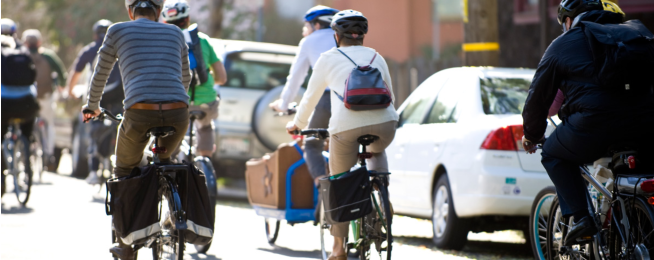Switching to bikes for some of our travel needs could have a substantial, community-wide impact on C02 emissions, a new study has found.
A research team surveyed thousands of travellers across seven European countries who completed 10,000 daily travel diaries.
Operational, fuel and vehicle lifecycle CO2 emissions were then derived, based on travel diary data and context-specific emissions factors.
The researchers calculated that daily mobility-related lifecycle CO2 emissions were 3.2 kgCO2 per person, with car travel contributing 70% and bike riding 1%.
Bike riders had 84% lower daily travel lifecycle CO2 emissions than participants who did not cycle.
Remarkably, making one less car trip and one more bicycle trip a day decreased lifecycle CO2 emissions from transport by 67%.
"Investing in and promoting active travel should be a cornerstone of strategies to meet net zero carbon targets, particularly in urban areas, while also improving public health and quality of urban life,” the team concluded.
While it has been long assumed that riding a bike for transport has great potential for emissions reduction, there was skepticism because of the belief that many car and van trips were not able to be substituted by bike trips.
This study, by analysing a large sample of actual daily travel across many locations, found that active travel did indeed substitute for motorised travel.
This means that even if not all car trips could be substituted by bicycle trips the potential for decreasing emissions is high.
The researchers found that if 10% of the population shifted modes from car (from 3 to 2 trips a day) to bicycle, relevant emissions would be expected to decrease by about 10%.
"Active travel has attributes of social distancing that are likely to be desirable for some time,” the study states. "It could help to cut back CO2 emissions and air pollution while improving population health as confinement is eased.
Therefore, locking in, investing in, and promoting active travel should be a cornerstone of sustainability strategies, policies and planning to meet our very challenging development goals that are unlikely to be met without significant mode shift to sustainable transport.
You can see the full study here.
Become our friend
Find out more about Bicycle Network and support us in making it easier for people to ride bikes.


